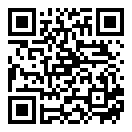Pages:
47-56
Receive Date: 2026/02/05
Accept Date: 2026/02/05
Abstract:
The material and spiritual growth and advancement in the Islamic society depends on observing the order, fulfilling the roles responsibly and obligingly and observing the legal and customary regulations and norms. Any disturbance in this process leads to imbalances and malfunctions, which, in the absence of management, will turn into social damage and, if it spreads, into a social problem and crisis. According to the distinction of cultures, each society follows certain values and beliefs and interprets ethics and moral corruption in the same discourse. This article seeks to recognize and evaluate the category of "moral corruption" as malfunctions disrupting the legal and customary order of Islamic society, inspired by the theory of "credibility" of Allameh Tabatabai, the Muslim schoaler. The research method is documentary and descriptive-analytical method. Considering Islamic anthropology and nature and the goal as a native approach, this theory seems to be more compatible with the life of the Iranian-Islamic world. The research method is documentary and descriptive-analytical writing.
چکیده و کلیدواژه فارسی (Persian)
Title :ظرفیتهای حکمت اسلامی در شناخت و ارزیابی مفاسد اخلاقی در جامعه*
Abstract:
رشد و ارتقای مادی و معنوی در جامعه اسلامی منوط به رعایت نظم و ایفای متعهدانه و مسئولانه نقش ها و رعایت مقررات و هنجارهای قانونی و عرفی است. هرگونه اختلال در این فرایند منجر به بی تعادلی و کژکارکردهایی می شود که با نبود مدیریت، به آسیب های اجتماعی و در صورت گسترش، به مسئله و بحران اجتماعی تبدیل می شود. با توجه به تمایز فرهنگ ها، هر جامعه ای از ارزش ها و باورهای خاصی تبعیت می کند و اخلاق و مفاسد اخلاقی را در همان گفتمان معنا می کند. نوشتار حاضر درصدد شناخت و ارزیابی مقوله «مفاسد اخلاقی» به مثابه کژکارکردهای مختل کننده نظم قانونی و عرفی جامعه اسلامی با الهام از نظریه «اعتباریات» حکیم مسلمان علامه طباطبائی است. به نظر می رسد این نظریه با توجه به انسان شناسی اسلامی و توجه به غایت و فطرت به عنوان رویکردی بومی با زیست جهان ایرانی ـ اسلامی سازگار تر است. روش تحقیق در این نوشتار اسنادی و توصیفی ـ تحلیلی است.
References:
- آرون، ريمون، 1364، مراحل اساسي انديشه در جامعهشناسي، ترجمة باقر پرهام، تهران، سازمان انتشارات و آموزش انقلاب اسلامي.
- پارسانيا، حميد، 1379، علم و فلسفه، چ دوم، قم، پژوهشگاه فرهنگ و انديشه اسلامي.
- طباطبائي، سيدمحمدحسين، 1363، تفسير الميزان،ترجمة سيدمحمدباقر موسوي همداني، قم، بنياد علمي و فکري علامه طباطبائي.
- ـــــ ، 1380، اصول فلسفه و روش رئاليسم، چ دوازدهم، تهران، صدرا.
- ـــــ ، 1381، نهاية الحکمه، ترجمه و شرح علي شيرواني، چ پنجم، قم، بوستان كتاب.
- معيدفر، سعيد، 1379، جامعهشناسي مسائل اجتماعي معاصر در ايران، تهران، سرزمين ما.
- Braude, l, 1975, Work and Workers, New York, Praeger.
- Rose, M., 1985, Reworking the work Ethic:Economic Values and Socio- cultural politics, London, schocken.
- Tilgher, A., 1930, Home Faber:work through the Age, Translated by D.C.Fishwr, New York, Harcourt Brace.
-
Cite this article:
RIS
Mendeley
BibTeX
APA
MLA
HARVARD
VANCOUVER
APA | MLA | HARVARD | VANCOUVER
Rahimi Sejasi, davoud.(2026) The Capacities of Islamic Philosophy in Recognizing and Evaluating Moral Corruption in Society. Ma`rifat-e Farhangi Ejtemai, 14(1), 47-56
APA | MLA | HARVARD | VANCOUVER
davoud Rahimi Sejasi."The Capacities of Islamic Philosophy in Recognizing and Evaluating Moral Corruption in Society". Ma`rifat-e Farhangi Ejtemai, 14, 1, 2026, 47-56
APA | MLA | HARVARD | VANCOUVER
Rahimi Sejasi, D.(2026) 'The Capacities of Islamic Philosophy in Recognizing and Evaluating Moral Corruption in Society', Ma`rifat-e Farhangi Ejtemai, 14(1), pp. 47-56
APA | MLA | HARVARD | VANCOUVER
Rahimi Sejasi, D. The Capacities of Islamic Philosophy in Recognizing and Evaluating Moral Corruption in Society. Ma`rifat-e Farhangi Ejtemai, 2026; 14(1): 47-56
 / Assistant Professor, Department of Sociology, Shahid University / d.rahimisojasi@yahoo.com
/ Assistant Professor, Department of Sociology, Shahid University / d.rahimisojasi@yahoo.com



